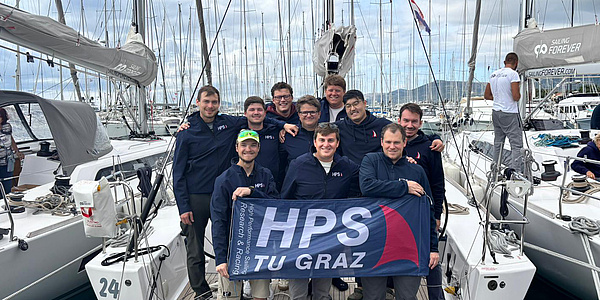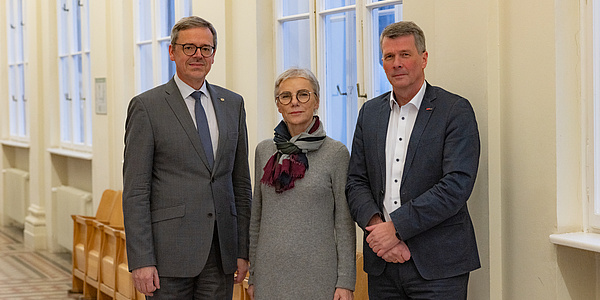Computational Social Sciences: Interplay Between Computer and Human

Computer scientist David Garcia wants to understand people. "The social sciences are the hard sciences: it is very hard to obtain trustworthy data, compared to physics, for example. Research is limited to surveys and studies, but there is so much we don't yet know about complex human systems," explains the 35-year-old professor of computational behavioral and social sciences at the Institute of Interactive Systems and Data Science at Graz University of Technology (TU Graz). For him, the interplay between new technologies and people's behaviour is interesting. How do people change in the presence of seemingly constantly eavesdropping household objects? How does this loss of privacy affect our ability to talk about feelings or seek help? How do people communicate after highly emotional events like a terrorist attack or an environmental disaster? And what considerations are made by an artificial intelligence (AI) whose results are auditable but whose working path remains invisible?
Data security and privacy
Data security and privacy play a major role in David Garcia's research. They help shape how new technologies – such as smartphones or smart household items – impact people's lives and communications. "In research, we ask ourselves how people express their emotions when they have the constant feeling that all conversations are being overheard and recorded by smart objects," Garcia explains.
Emotions are an important content of his work. For example, he investigates whether people's communication behaviour after highly emotional events, such as a natural disaster or terrorist attack, can be compared online with offline. Garcia recently found a tragic research opportunity in Austria: the terrorist attack in the Vienna city centre in November 2020. “It is not the time to carry out polls directly after such a terrible event. But it would be needed for research. So we looked at how people communicated online via Twitter and whether we could apply these findings to the population as a whole. And yes, we’ve had good results." However, his methods are not intended to replace the classical methods from psychology or sociology, but rather complement them with their wealth of data.
David Garcia examined public emotions following the terrorist attacks in Vienna and in Paris.
Donald Trump and Brexit
"In 2012, I started to look at the polarization of our society. At that time, Donald Trump was not yet a politician and the UK was still in the EU – no one could have known how important this issue would soon become," Garcia says of another important research interest. Together with his team, he studies complex social networks online; observes how different groups form clusters; learns how opinions are formed in large-scale society. In particular, he wants to find out how social opinions begin to change over longer periods of time.
In addition to the text-heavy online network Twitter, which often serves as the basis for his work, he has discovered a new, insightful medium in Austria: the forum of the news portal derstandard.at. "This treasure trove of data is incredible. There's a lot of discussion – even by people who aren't actually part of this newspaper's typical target audience."
Right hand and left hand
It is also interesting to note that not only do people communicate online, but the technical means also affect how people communicate. Among other things, David Garcia deals with the QWERTY effect, which influences how positively a text is perceived. This effect describes that the number of letters typed in with the right hand on a keyboard in a text affects the perception of the text. "The more letters in it that are laid out on the right side of the keyboard, the more positive a text becomes for the reader," Garcia describes. "I couldn't believe it myself at first when I first read about it." So he tried it out himself and examined, among other things, the titles of videos on the video platform YouTube. "And in fact, videos that were written with more right-handed letters had more likes on average."
In the autumn, the new English-taught Master's programme in Computational Social Systems, largely influenced by David Garcia’s work, will be launched at TU Graz. You can find all the relevant information online at Master's programme Computational Social Systems.
Artificial intelligence and questionnaires
In his research, however, David Garcia also uses the opposite approach and tries to understand new technologies with the help of social science methods. For example, an artificial intelligence is a difficult technology to verify. While researchers can see whether the AI's results are accurate, they cannot see how it arrived at those results. "So we're applying methods from psychology but to the behaviour of intelligent machines" the researcher explains. "This allows us to learn a lot about how the AI works and, for example, we now know why it perceives a text as positive, negative, angry or happy."
To discuss or not to discuss
In his daily work, David Garcia is confronted with surging emotions that often dominate conversations online. Is it even possible to remain calm and objective in the process? "I stopped participating in online discussions myself a long time ago," Garcia tells me with a smile. "Online media is not so much about changing the opinions of others as it is about holding on to your own opinion. These discussions rarely contribute to changing the other person's mind. So today I prefer to observe."
This research area is anchored in the Field of Expertise “Information, Communication & Computing”, one of five strategic foci of TU Graz.
You can find more research news on Planet research. Monthly updates from the world of science at Graz University of Technology are available via the research newsletter TU Graz research monthly.
Kontakt
David GARCIA BECERRA
Univ.-Prof. Dr.sc.ETH
Institute of Interactive Systems and Data Science
Phone: +43 316 873 30688
dgarcia@tugraz.at




